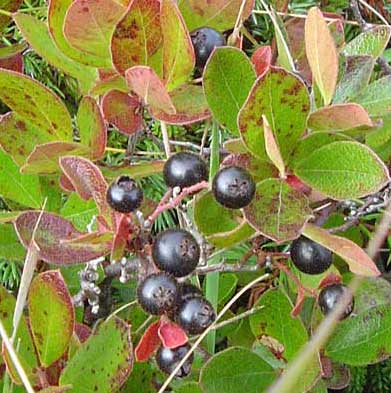"Wild Fruits" is book based on an unfinished
manuscript written by Henry David Thoreau, otherwise mostly known as the author
of "Walden". The manuscript was discovered posthumously but not
properly published until recently. Christian Science Monitor calls it "an
important literary event...well worth any nature lover's attention". Since
"Wild Fruits" is unfinished, the book does give a very unkempt
appearance, a bit like a wild forest perhaps? It's part cultural history, part
natural history, and part poetry. Of course, Thoreau also bemoans modern
civilization, while expressing his religious and philosophical views. Like his
colleague Emerson, Thoreau was a Transcendentalist.
The editor of "Wild Fruits", Bradley P Dean, dwells on Thoreau's pantheist views in an introductory section. Thoreau explicitly wanted to find God in Nature, and describe its divine features. He wanted a "Bible" drawn not from Egyptian or Babylonian sources, but from New England. In his journals, Thoreau wrote that muskrat houses (sic) will be mentioned in his New Testament, and during a trip to Mount Katahdin, the author experienced something akin to a mystical vision, during which he got "contact" with "the real world". Nature also made him understand the mystery of spirit, matter and body. "In Wildness is the preservation of the World".
While this open religious preaching seems to be absent from "Wild Fruits", Thoreau's almost sacramental view of Nature is an important part of the context of the projected book. Presumably, when Thoreau calls the swamps were high blueberries grow "sacred places" while attacking privately owned huckleberry fields as "cursed spots", he means this quite literally. Thoreau writes that "we occupy the heaven of the gods without knowing it", and says concerning our present predicament that "it would imply the regeneration of mankind if they were to become elevated enough to truly worship sticks and stones".
The manuscript also contains Zivilisationskritik, often through the lens of a young Thoreau picking berries in the forest. As already mentioned, the author disliked private property. As a boy, Thoreau was chased by the owner of a cranberry field, not realizing that some parts of the forest were privately owned! However, he also disliked the rapaciousness and aggressive antics of other berry-pickers, who were presumably out to earn a fast buck. The tragedy of the commons? Even as an adult, Thoreau disliked the human encroachment on the sacred forests around Walden, complaining about being disturbed by a noisy party of blueberry-pickers while eating a supper on milk and blueberries. The author at one point makes a comparison between aggressive pickers of berries, and White settlers stealing Indian and Mexican land.
Thoreau is suspicious of interstate trade and economic growth: "But the worst of it is that the emissaries of the towns come more for our berries than they do for our salvation". At another point, the author exclaims: "Why such haste to go from the huckleberry field to the college yard". Thoreau sees berry-picking as a kind of education (presumably in virtue, frugality or hard work), while his siblings apparently had a different attitude, waiting at home for Thoreau to return with his berries, so their parents could make pie... The sage of Walden Pond half-jokingly calls himself a "Mithridates among the berries", presumably a reference to the wilderness years of Persian king Mithridates VI, which made him hardy and completely immune to poison. But no, Thoreau wasn't actually against eating wild fruit. He brags about finding shad bushes and turning their berries into an appetizing pudding, while the local farmer (who had lived in the area for 70 years) had no idea such a plant even grew around his property. It also seems that even Thoreau occasionally needed cash, not just hardy muscles or puddings. He actually complains about a man owing him money trying to repay the debt in red huckleberries!
The material on natural and cultural history contains many references to Pliny, to older books on North American natural history, and discussions on what various berries are called in the languages of various American Indian nations. Thoreau also calls upon his own knowledge of the area around Concord, for instance when describing the high blueberry. Here, too, he retells some anecdotes. Apparently, his grandmother brought over the first ripe cherries of the year to her brother on the day of the Battle of Bunker Hill, 17 June 1775. The brother was confined in Concord Jail, since he was a Loyalist...
Those interested in buying "Wild Fruits" should note, however, that large parts of the book aren't particularly interesting. It is an unfinished work, after all. The shorter entries may sound like this: "Black Ash, September second". That's all Thoreau managed to tell us about this particular tree. I don't think Thoreau's observations and musings are suitable for the general public, although (ironically) this book is much easier to read than "Walden". That being said, "Wild Fruits" might nevertheless fill a niche, perhaps on the shelves of cultural historians, really hard line botanists, or Thoreau aficionados.

No comments:
Post a Comment